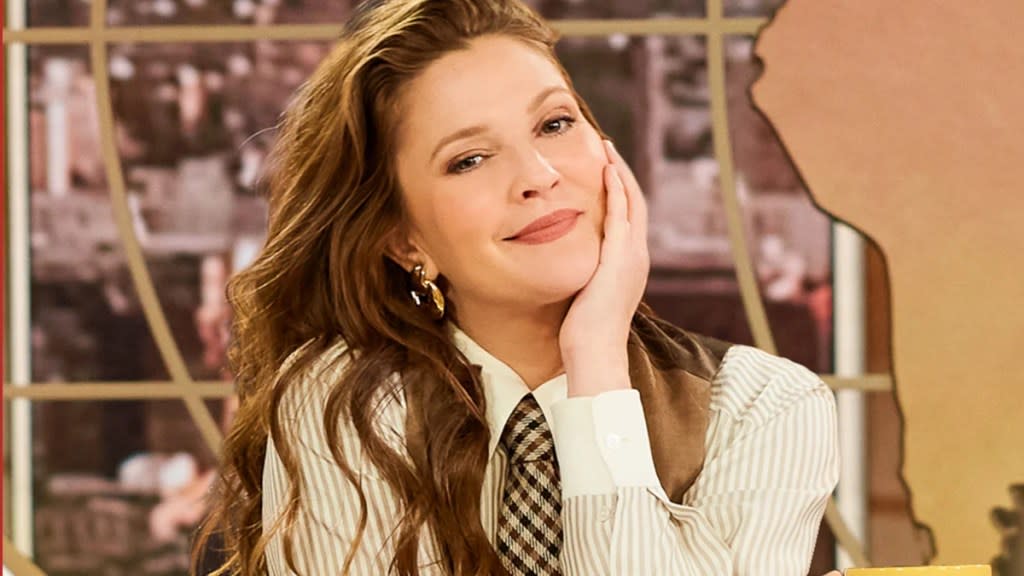WGA Strike and Daytime Talk Shows Explained: Why Drew Barrymore’s Show Is Being Picketed

- Oops!Something went wrong.Please try again later.
As the WGA strike stretches into its fourth month, writing and filming on most TV shows and movies across the industry have shut down, especially after SAG-AFTRA members joined striking writers on the picket line in mid-July. Which is why some were confused when Drew Barrymore announced in September that she’d return to shoot “The Drew Barrymore Show” without writers.
While productions from studios in the Alliance of Motion Picture and Television Producers are considered “struck” by the guilds, there are exceptions for some, including those that gain interim agreements from SAG-AFTRA as well as projects that aren’t contracted through the guilds on strike, including reality series and productions filming internationally.
As daytime talk shows resume production for the fall season, “The Drew Barrymore Show” was one of several series to face scrutiny for returning without writers, as WGA members picketed the show’s Monday filming at New York City’s CBS Broadcast Studios.
Keep reading to learn more about why some daytime talk shows are breaking the WGA strike’s rules and which series are in the clear:
Why is “The Drew Barrymore Show” considered a “struck show?”
While Barrymore clarified in an Instagram post announcing the show’s return amid the strike that production is “in compliance with not discussing or promoting film and television that is struck of any kind,” the series is breaking the WGA’s strike rules by returning without its writers.
Per a WGA East tweet, “The Drew Barrymore Show” is considered a “struck show” because it is covered under WGA contracts and, by returning without writers, prompts scabs to write on the show in place of striking WGA members.
“The Guild has, and will continue to, picket struck shows that are in production during the strike,” the tweet continued. “Any writing on ‘The Drew Barrymore Show’ is in violation of WGA strike rules.”
The @DrewBarrymoreTV Show is a WGA covered, struck show that is planning to return without its writers. The Guild has, and will continue to, picket struck shows that are in production during the strike. Any writing on “The Drew Barrymore Show” is in violation of WGA strike rules.
— Writers Guild of America, East (@WGAEast) September 10, 2023
What other daytime talk shows are considered “struck shows?”
Any other daytime talk shows that regularly employ WGA members and are covered under WGA contracts will be considered “struck shows” if they resume production without writers, including ABC’s “The View” which continued production through the strikes without its two WGA writers and has been picketed.
While CBS’ “The Talk,” which staffs WGA writers, went dark at the onset of the strike, as it heads back into production amid the dual strikes, it will likely be considered a “struck show.” As will “The Jennifer Hudson Show,” which is also slated to begin the season without WGA writers due to the strike as well.
“The Kelly Clarkson Show” also employs WGA staffers, but is not yet in production — it’s currently in preproduction as it moves from Los Angeles to New York City.
What daytime talk shows are not considered “struck shows?”
Shows that don’t employ WGA staffers, which include “Sherri,” “Karamo,” “Tamron Hall” and “Live With Kelly and Ryan,” are not considered “struck shows.”
Can striking actors go on the talk shows?
SAG-AFTRA members can still go on the talk shows, per the guilds’ guidance, but they can’t discuss any past, present or future TV shows or movies associated with struck studios. Actors on independent projects with an interim agreement from SAG-AFTRA may be permitted to discuss that and other projects that have interim agreements.
For example, when Matthew McConaughey appeared as a guest on “The View” earlier this week, he could not discuss any upcoming movies or series that he’s involved in, but he could promote his new book, “Just Because,” since that is not covered under a SAG-AFTRA agreement.
In short, expect to see a lot of celebrities talking books, family and personal endeavors as the strike persists.
For all of TheWrap’s WGA strike coverage, click here.
The post WGA Strike and Daytime Talk Shows Explained: Why Drew Barrymore’s Show Is Being Picketed appeared first on TheWrap.

